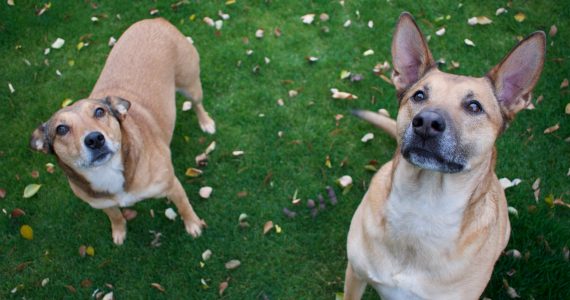Kennel cough
Kennel Cough in Dogs
What is kennel cough and what causes it?
Kennel cough in dogs is caused by several infectious agents. The most common organisms are Bordetella bronchiseptica bacteria and Parainfluenza virus. They work together to damage and irritate the lining of the dog’s upper airways, causing a dry, hacking cough.
Coughing starts three to seven days after the dog is initially infected. It sounds as if the dog needs to “clear his throat”.
It is triggered by excitement or exercise.
Kennel cough symptoms – how do I know if my dog has kennel cough?
Most dogs with kennel cough will cough frequently throughout the day but will usually still be bright and alert.
They have a normal appetite and no fever.
Kennel cough lasts from one to three weeks and your dog must be isolated during this time.
How is kennel cough transmitted?
Kennel cough in dogs is spread when an infected dog coughs and the viruses/bacteria are released into the air. When another dog inhales this material, the pathogens attach to the upper airways, replicate and damage the airway cells.
This disease is very common and spreads easily, especially in environments where there are large numbers of animals (hence the name “kennel” cough).
Dogs do not have to come in physical contact for the disease to spread, they can pick it up from the park grass, communal dog bowls or even the footpath outside your house.
Infected dogs will often spread the disease before they have even started coughing. They can also spread it for days to weeks after they are recovered. Therefore, it is very important to isolate your dog until it has completely stopped coughing.
What is the treatment for kennel cough?
Most dogs with kennel cough will be their bright, normal selves. Usually, they will clear the disease on their own without any medication. This takes seven to ten days.
However, coughing can be a sign of many other illnesses including:
- Heart disease
- Canine bronchitis
- Heartworm
Your veterinarian will perform a thorough physical examination and will be able to determine if there may be an underlying or separate problem.
Treatment is symptomatic relief with cough suppressant medication. Antibiotics are only used if there is a secondary bacterial infection. Symptoms of this include fever, lethargy or loss of appetite.
How can I prevent kennel cough in my dog?
Many dogs socialise frequently with each other these days: at the beach, doggy daycare or at the dog parks. This means that we commonly see kennel cough in our pets.
The best form of prevention is annual vaccination. There is an oral dose for Bordetella bronchiseptica and an injection (included in the C4 part of the vaccination) for Parainfluenza.
Because there are new strains of kennel cough in dogs each year it is important to stay on top of your dog’s vaccinations. However, there is still a chance they may get a mild form of the disease if the strain is different from the one used in the vaccine.
Other ways to prevent kennel cough are to bring your dog’s own water bowl or bottle rather than using communal bowls at cafes, the beach or dog park.
If your dog does pick it up make sure you keep them at home until their coughing has completely resolved, to stop it from spreading to others.
If you’re concerned about your coughing dog, please talk to our friendly Adelaide vet team at Port Road Vet or book an appointment online.

